7 “Healthy” Foods You Should Avoid

When we think of junk food, we imagine fast food chains serving cheeseburgers and fries, or grocery shelves lined with bags of potato chips. However, there are also many “healthy foods” that are simply junk food in disguise.
In fact, many products marketed as healthy are actually ultra-processed foods (UPFs) containing a slew of hidden toxins. What makes something an ultra-processed food? Think of the journey an ear of corn takes to become a Dorito. All UPFs have been significantly altered from their original state by industrial manufacturing processes. This processing can result in toxic additives that can lead to a higher risk of heart disease, diabetes, inflammation and more.
Consider reducing your intake of these common ultra-processed foods that seem healthy, but are actually junk foods.
7 “Health” Foods That Are Not Healthy
1. Protein Bars
Protein bars are touted as alternatives to candy bars, and are believed to be a healthy snack packed with oats, nuts, and dried fruits.
The reality is that protein bars, though often perceived as nutritious, are a prime example of how consumers can be misled. Many protein bars are loaded with added sugars, unhealthy fats, and artificial additives. Some of the most common artificial sweeteners used are sucralose and erythritol, both of which are linked to a risk of heart issues. (1)
Besides large amounts of sugar in protein bars, the hydrogenated oils used in protein bars are often highly processed trans fats. The Mayo Clinic warns that trans fats have been associated with higher LDL (bad) cholesterol levels. Research also points to a correlation between trans fats, inflammation, and a greater risk of heart disease (2).
Protein bars can also be a source of the pesticide glyphosate. Non-organic protein bars made with oats, corn, wheat, or nuts likely have residues of glyphosate since these crops are sprayed with the chemical.
2. Plant-Based Burgers
Lots of people believe products are healthy when they’re made from plants. While that’s generally true, there’s an exception to that rule. New plant-based burgers promise the taste and texture of meat, but they are actually highly-processed, genetically-modified foods. These burgers can be filled with additives, preservatives, and flavorings.
The ingredients in one popular burger for example include GMO and other highly processed additives. These include soy protein concentrate, methylcellulose, cultured dextrose, food starch modified, yeast extract, soy leghemoglobin, and soy protein isolate, just to name a few.
Research shows there are no real health benefits from eating plant-based if the food is ultra-processed. In one large scale study, participants that ate more plant-based UPFs, including meat alternatives, had a 5% increased risk of cardiovascular disease and the likelihood of dying from disease went up 12% (3).
3. Non-Dairy Milks
Non-dairy milks are another example of where plant-based foods can still fall in the ultra-processed category.
Along with high levels of added sugar, non-dairy milks can often contain artificial colors, flavors, and thickeners. One such additive is carrageenan, which animal research has linked to gastrointestinal inflammation (4).
When it comes to plant-based milks, aim to find an organic alternative. And check the ingredient list to make sure it doesn’t contain carrageenan, hydrogenated oils, or artificial colors.
4. Non-Organic Soy Products
Soy is one of the main GMO crops grown in the US, modified to survive toxic herbicides. These crops are not only genetically engineered, but they are also heavily sprayed with glyphosate. Currently about 94% of the soy grown in the US is genetically modified (5).
If you enjoy tofu, soy milk, or other soy products, make sure you’re buying organic to avoid a residual dose of toxic glyphosate in your food.
5. Packaged Bread
Do you shop in the bread aisle? Most of us do. The healthiest options are breads with high levels of organic grains and seeds. The worst are white breads with bleached flour and countless additives.
Not only will non-organic breads with bleached flour likely have pesticide residues, but these loaves are often high in sugar and low in fiber. These refined carbohydrates are very high in the glycemic index and contain little to no nutrients.
The glycemic index ranks how quickly a food or drink will raise glucose levels in the blood, triggering a blood sugar spike. High glycemic foods like white bread are linked to increased risk of Type 2 Diabetes (6).
6. Flavored Yogurts
Yogurt is a healthy snack or breakfast option, rich in probiotics and calcium. Most of the time. Many commercial yogurt brands are loaded with sugar and other artificial additives.
A study published in BMJ Open reviewed a variety of conventional and organic yogurts in the UK. They found that many flavored yogurts, especially those marketed to children, contain more sugar per serving than a can of soda (7).
The high sugar content of yogurt can negate any potential health benefits of the probiotics. High sugar foods can contribute to insulin resistance, obesity, and other metabolic disorders.
7. Vegetable Chips
A common “healthier alternative” to regular potato chips are veggie chips, straws, or puffs. Although vegetable chips are thought to be a guilt-free snack, they are far from being a true health food.
Vegetable chips are typically fried at high temperatures in refined oils. This process can produce acrylamide, a potential carcinogen that forms in starchy foods cooked at high temperatures (8).
Vegetable chips are also often made from root vegetables or corn that are typically sprayed with pesticides and herbicides. So, if you are going to treat yourself to a chip snack, it’s preferable to pick organic to avoid these toxins and their health effects (9).
Look Closely at Labels to Find True Healthy Choices
It can seem overwhelming to shop at the grocery store when seemingly everything on the shelves is contaminated with some kind of toxin. But there are easy steps you can take to ensure you are purchasing the best options for you and your family.
- Check ingredients. The old adage rings true, “If you can’t read it, don’t eat it!” If there is a long list of chemical-sounding ingredients, it’s most likely an ultra-processed food, even if the packaging suggests otherwise.
- Buy organic when you can. The USDA organic logo tells you that the product has gone through a rigorous process to prove it is not GMO and does not contain artificial ingredients, pesticides, or herbicides.
- Does it look like the original food? How many steps do you think the ingredients went through to produce the product (think corn to Dorito)? Each step in the industrial manufacturing process is yet another way that foods are stripped of their original nutrients.
The healthiest way to eat is to enjoy organic whole foods or minimally processed foods. This means fresh or frozen fruits, veggies, meats, seafood, whole grains, and cold-pressed oils.
Even if you are a seasoned grocery detective, it’s almost impossible to avoid toxins in our food supply. That’s why it’s so important to detox regularly to lessen the burden of toxicity.
Detoxing doesn’t have to be difficult. Natural zeolite binds to toxins in the gut and body, helping to reduce toxins. With a few simple sprays of liquid zeolite Pure Body Extra, you can help detox the body. Natural zeolite is a gentle and effective detox that is safe for the whole family. By detoxing, you can help reduce your exposure to toxins in the food we eat.

